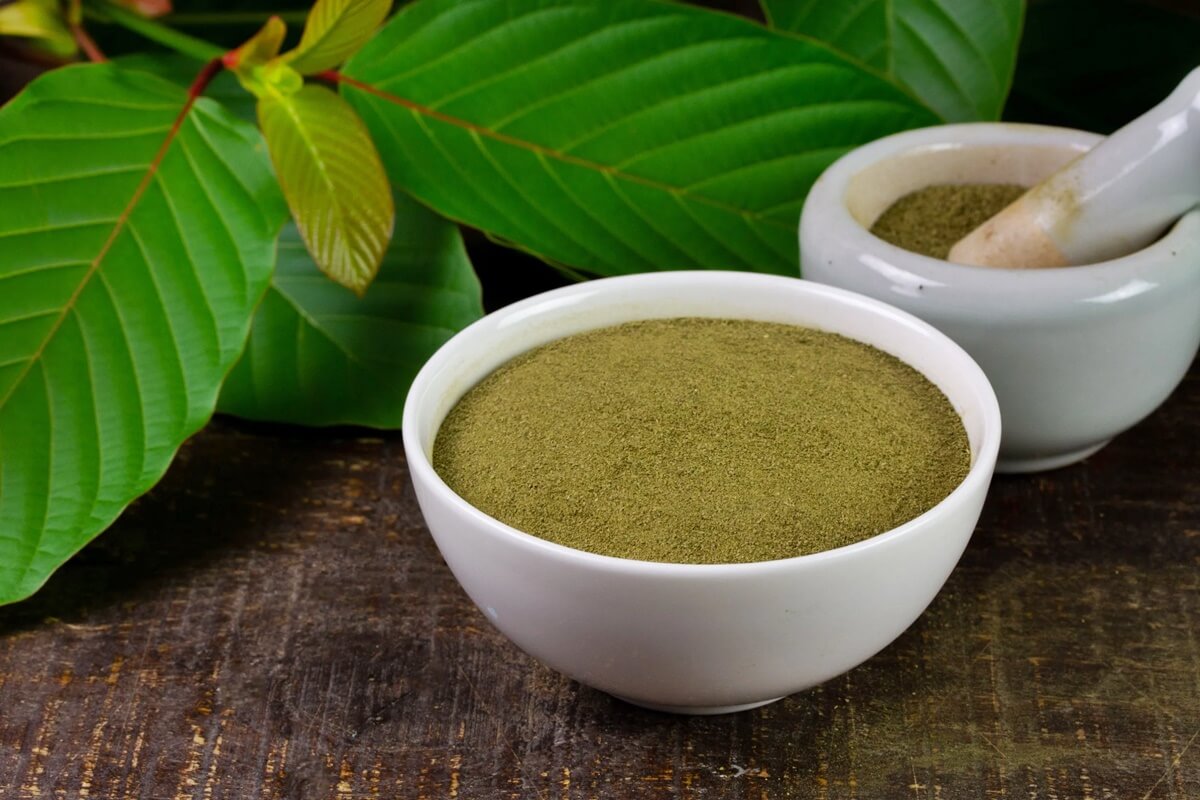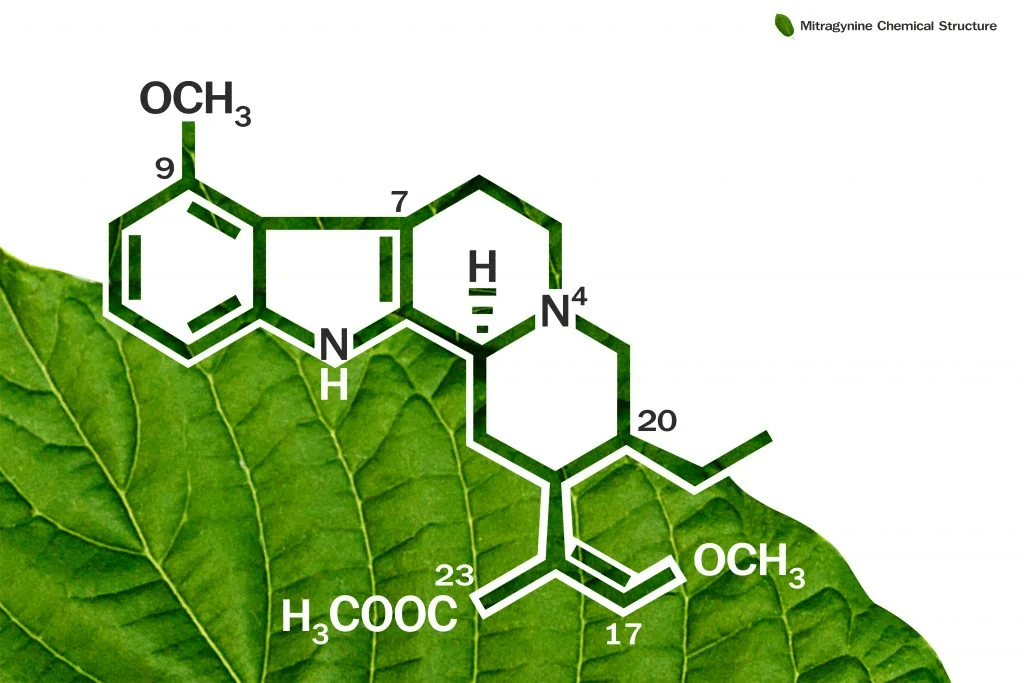
The kratom is a tropical evergreen tree that grows in Southeast Asia and it is often used as a medicine.
This blog will look into what kratom is all about, what it does in the body and brain, and the related health benefits such as pain management, mental health benefits, and energy.
Additionally, we’ll also highlight possible risks and precautions. Want to know more information about kratom’s possible health benefits and studies around them? Keep on reading.
Understanding the Basics of Kratom
A substance known as kratom originates from Southeast Asian countries for pain relief and energy support.
The studies are looking into its impact on individuals suffering from opioid addiction. However, we must be very cautious when using kratom because there is a danger associated with it as in case of withdrawal symptoms.
Kratom can be used by patients, though they must take into consideration that it aids in pain management, mental health, and concentration.
It is important therefore to understand the advantages as well as disadvantages associated with kratom use and how best to combine the herb with conventional remedies.
How does Kratom interact with the body and brain?

Kratom's alkaloids, particularly mitragynine, are known to affect mood, pain perception, and opioid withdrawal symptoms.
Research highlights its impact on cognitive behaviors and brain metabolite profiles, especially in developmental stages.
Higher doses of kratom may lead to dependence and withdrawal, and while rare, cases of overdose deaths call for further research and safety guidelines.
The pharmacology of kratom remains a key focus in ongoing clinical research and case studies.
Current Research Overview on Kratom
Kratom, a Southeast Asian plant, has been the focus of recent research exploring its health impacts and safety concerns.
This overview examines key studies on Kratom's effects on various physiological systems, product safety, and public health implications, highlighting the need for comprehensive understanding and regulation.
A Comprehensive Review of Kratom's Health Effects
In their 2022 narrative review, Striley and colleagues offer an extensive examination of kratom's impact on health, covering a range of physiological systems.
This study delves into how kratom use affects cardiovascular, gastrointestinal, neurological, and psychiatric well-being.
It provides a holistic view of kratom's influence on the human body, highlighting both potential therapeutic benefits and risks.
This research is instrumental in understanding the multifaceted nature of kratom's health effects.
Mitragynine and Cardiovascular Health
Mitragynine, kratom's key alkaloid, has been closely studied for its effects on the cardiovascular system.
Chichagi in 2023 research delves into how this compound interacts with heart health, examining both its benefits and potential risks.
The study is pivotal in understanding the balance between mitragynine's therapeutic effects and its possible cardiotoxicity, especially at higher doses.
Kratom Product Safety
Prozialeck and team, in their 2020 study, scrutinized various kratom products for mitragynine levels, toxic metals, and microbial presence.
Their findings highlight the inconsistency in kratom product quality, raising significant safety concerns.
This research underscores the need for standardized safety measures in kratom production to ensure consumer well-being.
Lead Contamination Concerns
In 2022, Prozialeck brought to light the concerning issue of lead contamination in kratom products.
Their commentary focuses on the public health implications of regular exposure to lead through kratom, particularly for frequent users.
This study serves as a crucial reminder of the importance of monitoring and regulating kratom products to safeguard public health.
Exploring the Health Benefits of Kratom
Kratom has potential pain-relieving properties and is being explored as an alternative to traditional medication. It also shows promise in mental health benefits, such as mood improvement and stress reduction.
Additionally, kratom may enhance energy and focus. However, further research is needed to fully understand its potential benefits for weight loss, alcohol dependence, and bipolar disorder.

Kratom's Role in Managing Pain
Research on Kratom, including a 2020 study by Adina Bowe and Patrick L Kerr, explores its use in treating chronic pain and opioid withdrawal.
This study highlights the potential of Kratom in pain management, showing improvement in a patient's condition with buprenorphine-naloxone treatment.
How Kratom Helps in Energy and Focus
Research on kratom's potential to boost energy and focus includes a 2023 study by A. Jagim and colleagues.
This study, focusing on energy drinks with ingredients similar to kratom, highlights how substances like caffeine can enhance mental alertness and performance.
This research is key in understanding kratom's effectiveness and safety for improving energy and focus.
Mental health benefits related to Kratom use
Exploring Kratom's potential mental health benefits, particularly for mood, anxiety, and stress relief, necessitates thorough research and safety considerations.
Research, such as the 2020 study by Rhiannon M Bath, Tanner Bucholz, Amy Buros, reveals that Kratom users report improvements in mental health symptoms like anxiety and depression, underscoring the need for comprehensive studies to understand Kratom's full impact on mental health.
Is Kratom Addictive?
Understanding the potential for kratom dependence is crucial. Users should be aware of the potential substance use disorder related to kratom and its association with opioid use disorder.
Further study is needed to fully grasp the extent of dependence and addiction to kratom products.
Researching Kratom's Addiction Potential
Understanding Kratom's addiction risk and public health impact is crucial.
The 2016 study by David Galbis-Reig, which details a case of Kratom addiction and severe opioid-like withdrawal, is pivotal in this regard.
It underscores the importance of awareness about Kratom's addictive properties and health effects, guiding safer usage and informing public health policies.
Treatment for Kratom withdrawal and substance use disorder
Public health authorities should prioritize finding treatments for kratom addiction, including symptom management during withdrawal.
Accessibility to treatment options is crucial to help those struggling with kratom-related substance problems.
This focus on the individual's needs can have a positive impact on their well-being.
Safe Kratom Use and Understanding Risks
For safe Kratom use, awareness of side effects, usage patterns, and public health guidelines is key.
Knowledge of the DEA's position, traditional uses, and risks associated with illicit drug use, including impacts on blood pressure and cardiac arrest, is crucial.
Heeding research from experts like Grundmann O and the National Institute on Drug Addiction and Drug Abuse aids in making informed decisions.
Additionally, understanding Kratom's withdrawal symptoms, potential risks, and interactions with other substances like salvia divinorum is vital.
Research on Kratom's prevalence in Peninsular Malaysia also contributes to a broader understanding of its use and safety.
Conclusion
Kratom may have health benefits like managing pain, enhancing mental well-being, and improving energy levels. But Kratom carries risks and can be addictive.
So, it's important to use caution when using Kratom. Seek professional help if you or someone you know struggles with addiction or withdrawal.
Always prioritize your well-being and make informed decisions when it comes to Kratom.
Please note that this article on kratom is for informational purposes only and not a substitute for professional medical advice, diagnosis, or treatment.





